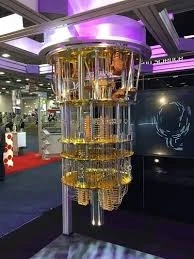What is Quantum Computing? | How Do Quantum Computers Work?
How do quantum computers work? In place of conventional bits, quantum computers use qubits as the basic unit of information.


How do quantum computers work? In place of conventional bits, quantum computers use qubits as the basic unit of information.

